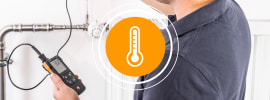- Home
- testo 175 T2
testo 175 T2 - Two Channel Temperature data logger
0572 1752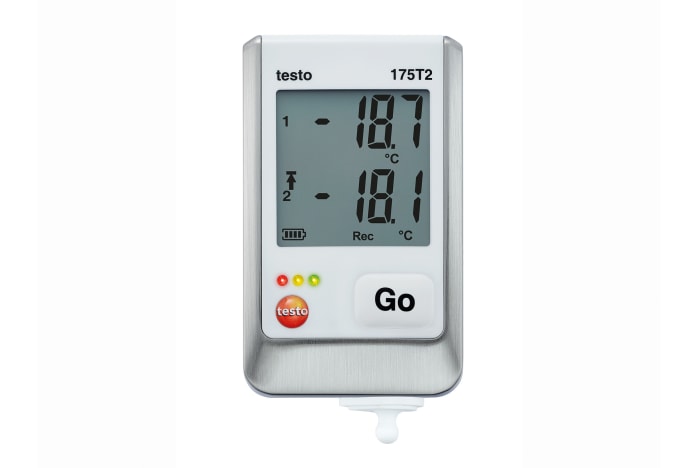

testo 175 T2 - Two Channel Temperature data logger
0572 1752The temperature data logging with testo 175 T2 is ideally suited if you want to use single instrument to monitor air temperature and at the same time record additional temperature value on a second channel. It suits best for food storage for parallel temperature control of ambient conditions and the goods themselves.
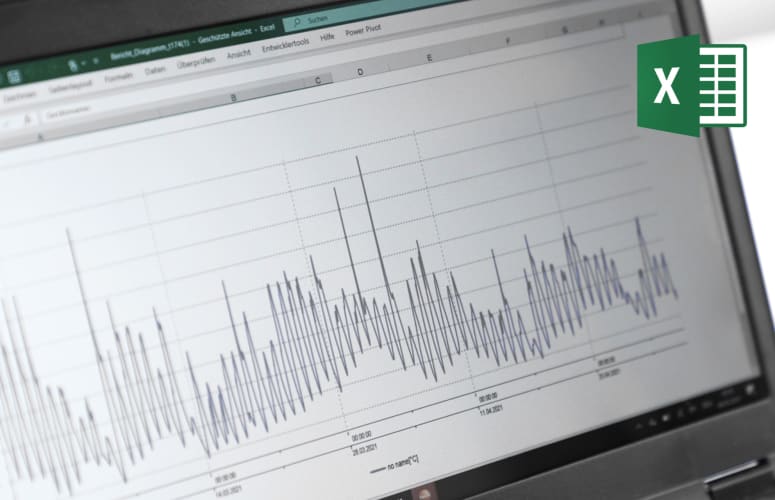 Professional software with Excel export function for programming the logger and data analysis.
Professional software with Excel export function for programming the logger and data analysis.
This is practical when storing and processing food, amongst other things: measure the ambient conditions of your goods in storage areas and cold stores and at the same time check the temperature level of the goods themselves – for example with a penetration probe (optional). Temperature control in the gaps in the packages is also possible. The measurement results from both channels are securely stored in the temperature logger.
State-of-the-art measuring technology, high level of data security
The temperature probe, which is securely fitted into the data logger, is an NTC sensor with a high level of measuring accuracy (±0.5 °C). The internal temperature probe’s measuring range goes from -35 °C to +55 °C. This means the temperature data logger can also be easily used in cold stores or deep-freeze rooms.
The accuracy and measuring range of the NTC probe, which is an optional attachment, depend on the probe model selected. For example, measurements in higher temperature ranges (upto +120 °C) are also possible with the appropriate temperature probe.
You can read the current measuring values, min./max. values, set limit values, violations of limit values and remaining battery life on the temperature logger’s clear display. This means you can check the most important data at any time, without having to read out the temperature logger on the PC. Less frequent read-out of the data logger is also required for shorter measuring cycles. This is due to its large memory for up to 1 million readings and the battery life of up to 3 years. Users can replace the standard batteries (AAA) themselves at any time.
You can rely on a high level of data security when using the testo 175 T2 temperature logger. Saved measurement data will not be lost even when the battery is empty or being replaced.
Programming and analysis with the temperature logger
You need software for programming and reading the temperature logger and analyzing measurement data on the PC. We offer three different software versions for you to choose from:
- ComSoft Basic software – available as a free download – enables fast programming of the data logger and easy measurement data analysis
- ComSoft Professional software – available as an option – offers a variety of possibilities for detailed analysis of measurement results
- ComSoftCFR 21 Part 11 software – available as an option – can be used for special requirements according to CFR 21 Part 11 in the pharmaceutical sector
Tested and certified for use in the food sector
- Tested according to EN 12830
- HACCP-compliant and international HACCP certification
- Water spray and jet protection according to protection class IP 65: this means the temperature logger can stay in the measuring location, even when the warehouses, cold stores, etc. are being cleaned
A USB cable is needed to programme the data logger and this is not included in the scope of delivery. You can however place an additional order for this. You can also transfer measurement data to the PC using the USB cable or an SD card (available as an option).
Temperature - NTC
| Measuring range | -35 to +55 °C internal -40 to +120 °C external |
|---|---|
| Accuracy | internal: ±0.5 °C (-35 to +55 °C) ±1 Digit external: ±0.3 °C (-40 to +120 °C) ±1 Digit |
| Resolution | 0.1 °C |
General technical data
| Weight | 130 g |
|---|---|
| Dimensions | 89 x 53 x 27 mm |
| Operating temperature | -35 to +55 °C |
| Product-/housing material | Plastic |
| Protection class | IP65 |
| Channels | 1 internal; 1 external |
| Product colour | white |
| Standards | EU-guideline 2014/30/EU; 2011/65/EU; DIN EN 12830 |
| Measuring rate | 10 s - 24 h |
| Battery type | 3 x AIMn type AAA or Energizer |
| Battery life | 3 years (15 min. meas. rate, +25 °C) |
| Interface | mini usb, SD card slot |
| Memory | 1,000,000 measuring values |
| Storage temperature | -35 to +55 °C |
Air probes
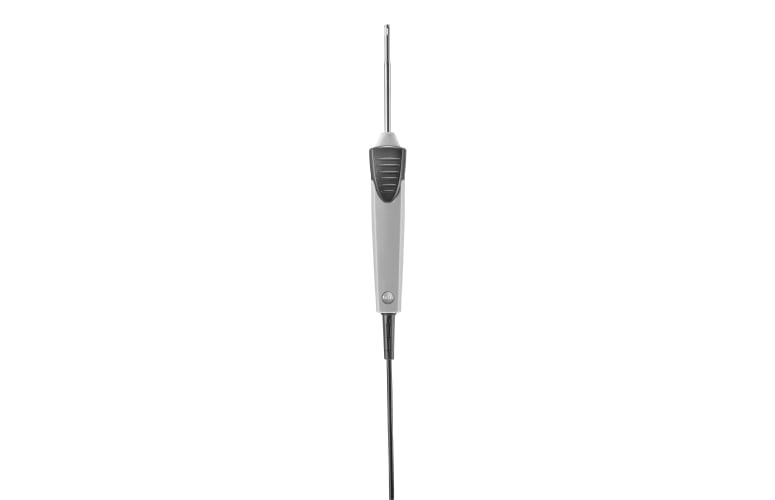
0613 1712
Food probes
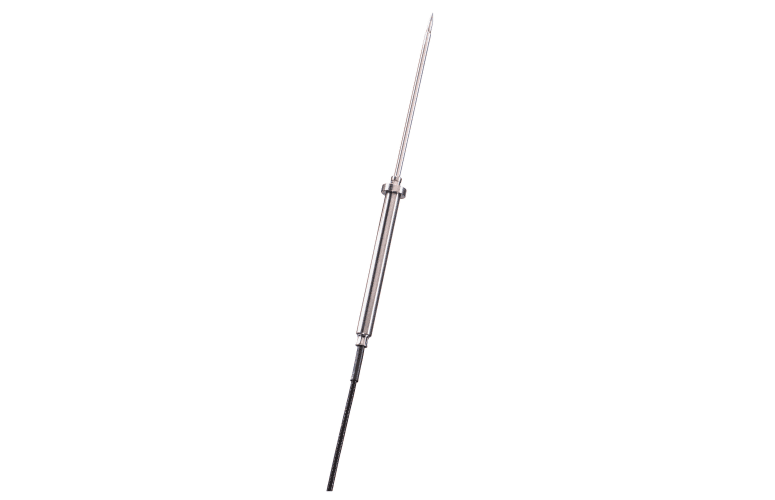
0613 2211
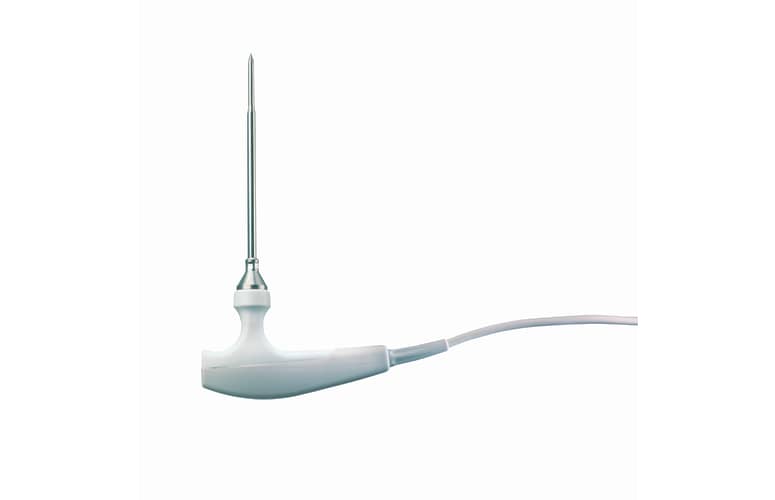
0613 2411
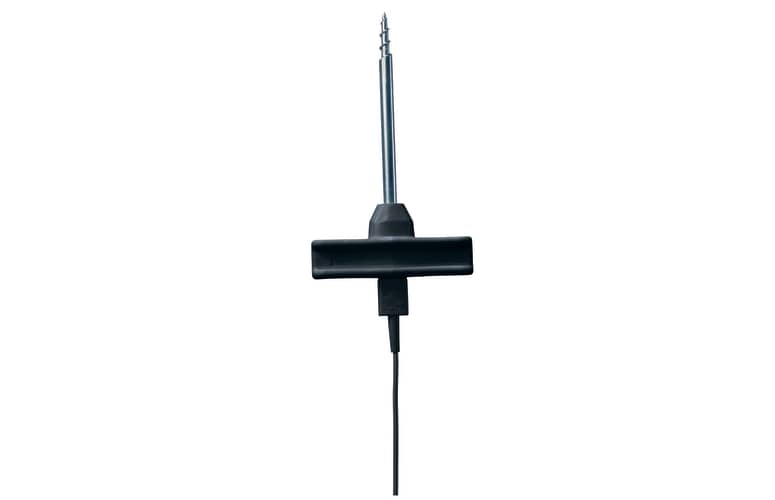
0613 3211
NTC temperature probes
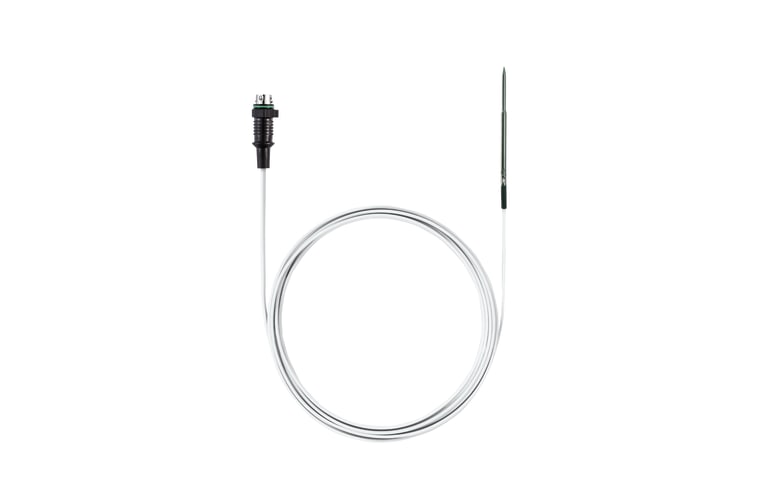
0572 1001
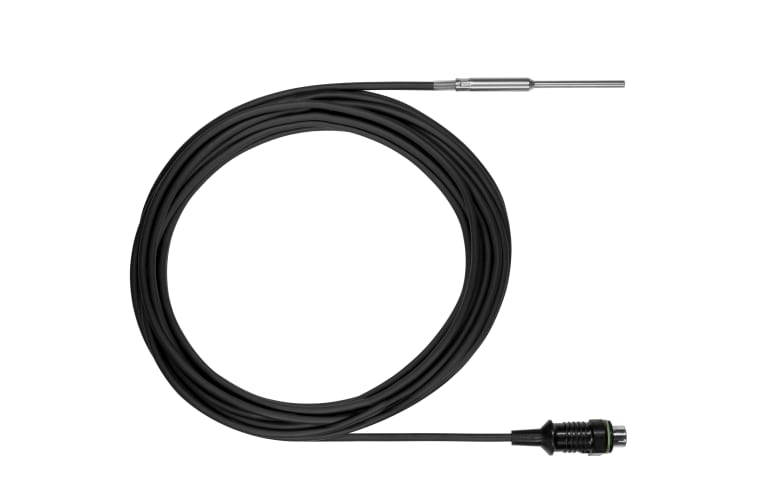
0610 1725
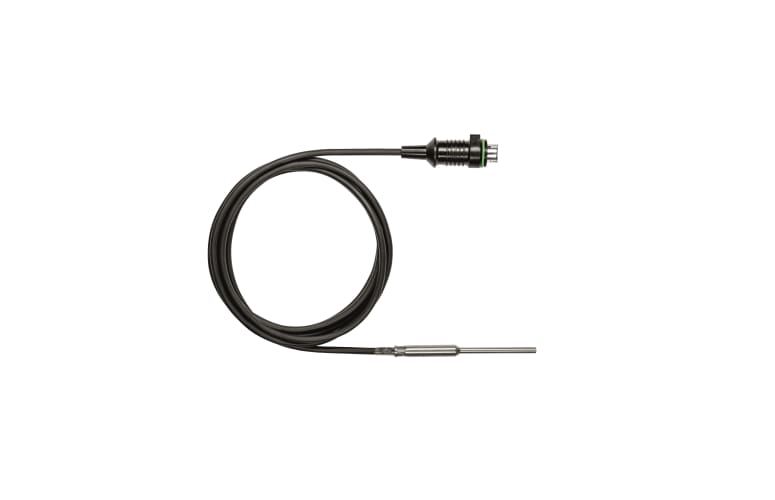
0628 0006
Surface probes
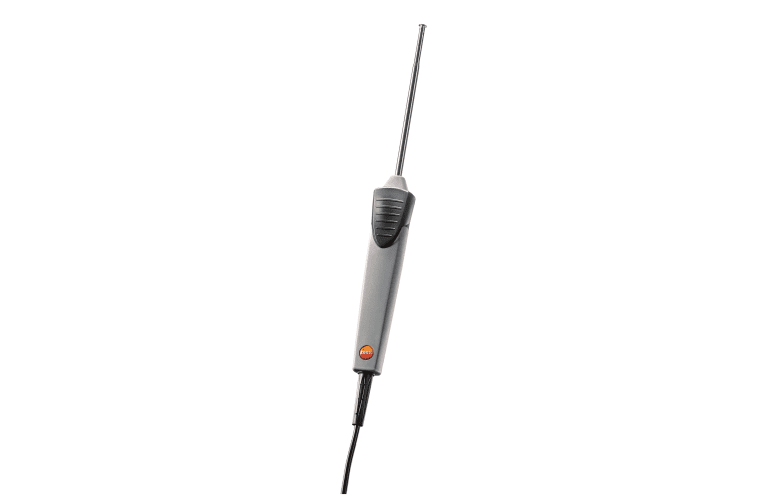
0613 1912
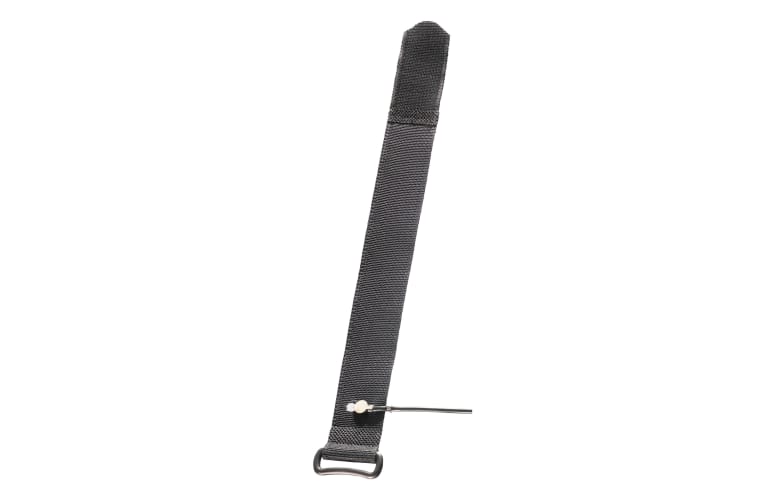
0613 4611
immersion/ penetration probes
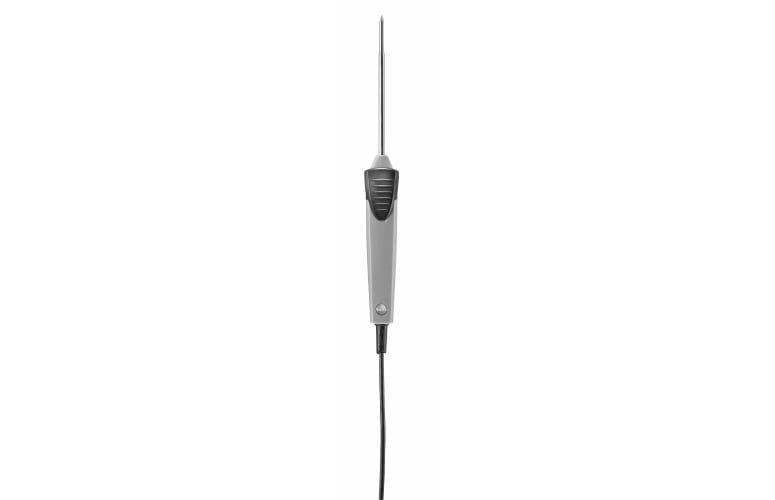
0613 1212

0635 0134
Accessories
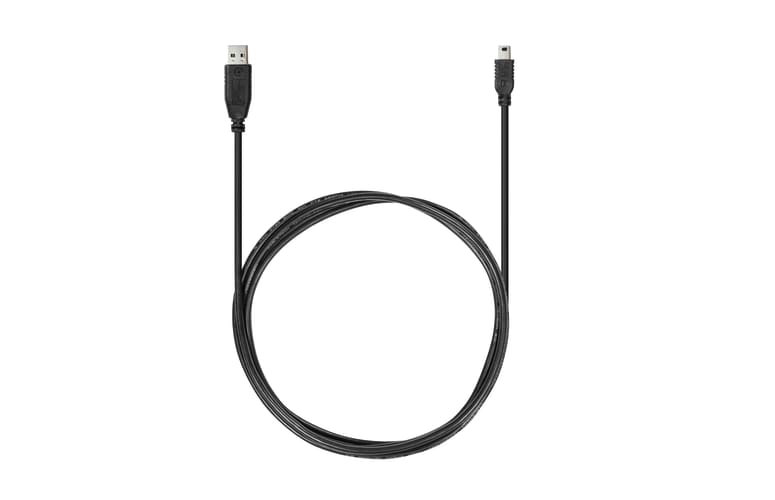
0449 0047
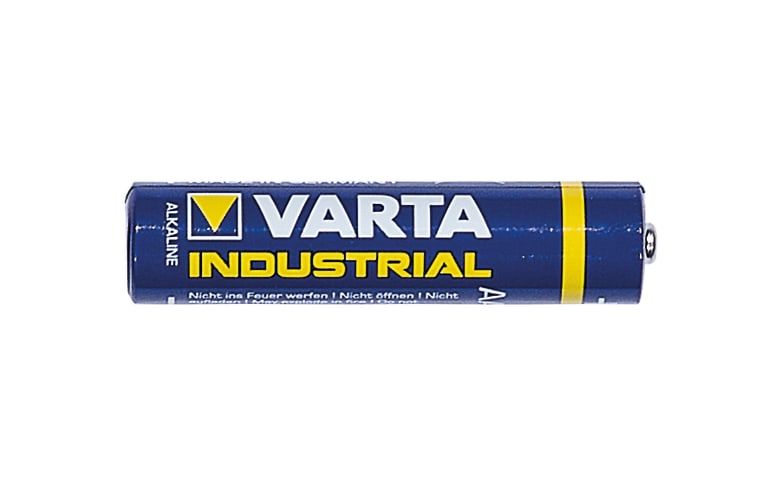
0515 0009
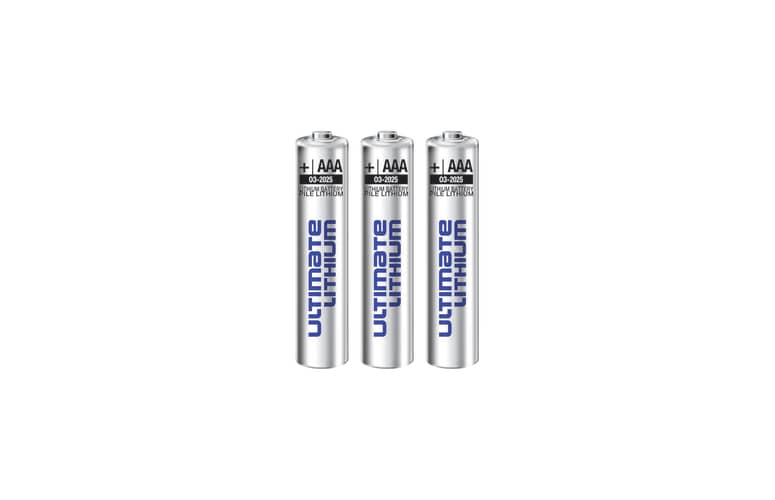
0515 0042
Certificates
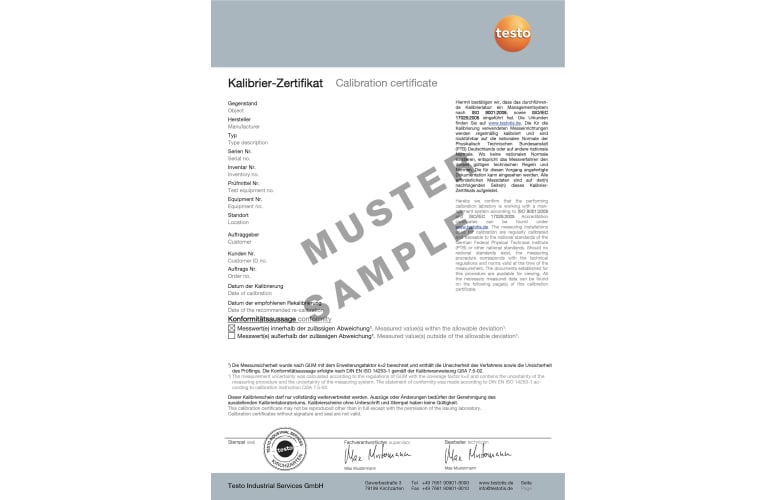
0520 0153
Printer and accessories
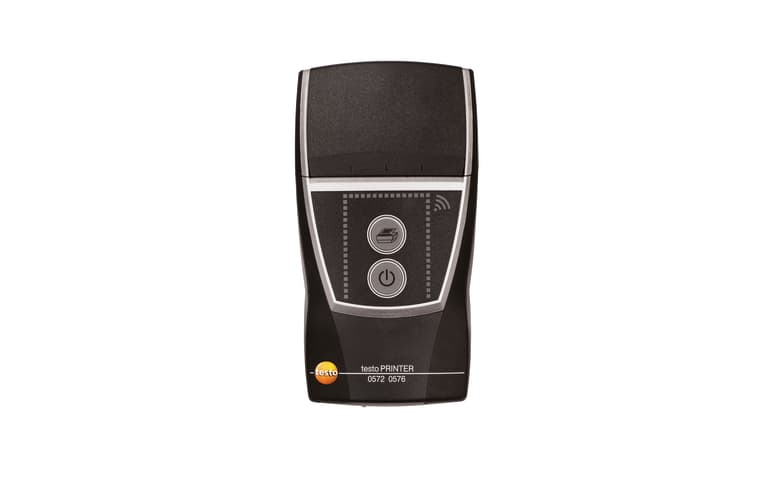
0572 0576
Monitoring and documentation of the temperature in cold storage rooms
Many foodstuffs or medicines have to be stored within a certain cold temperature range. This may be in individual refrigerated storage rooms, but also in specialised cold storage warehouses or high bay cold store warehouses. The temperature has to be documented in all of these refrigerated facilities, as strict regulations apply to quality management both in the food processing and medicine industries.
Data loggers are usually placed at the 'Critical Control Points' (CCPs) of a cold storage room to enable any fluctuations in temperature to be detected and appropriate action to be taken. Critical places include doors or passages into other temperature zones within a warehouse.
Monitoring the temperature in frozen food storage areas
There are many facilities where (deep) frozen foods need to be stored. These range from individual freezer rooms at small food manufacturers (e.g. butchers), restaurants and supermarkets, freezer rooms in the food processing industry, right through to specialised cold storage warehouses/high bay freezer warehouses. In all of these facilities, the temperature has to be documented continuously. In Europe, only temperature recording devices that comply with EN 12830 are allowed to be used.
Data loggers are typically used to measure the air temperature in these kinds of storage facilities. The measuring instrument is positioned within the freezer room at the critical places where possible, such as by doors or refrigeration units, where it records temperature data at specified intervals (typically: every 15 minutes).
With the aid of special software, the recorded data can consequently be analysed and stored.
Monitoring and documentation of storage temperatures
The proper observance of storage temperatures is an important prerequisite for the quality control of many products; e.g. in the area of foodstuffs and pharmaceutical products.
Data loggers are usually used for this purpose. They monitor and document the course of ambient temperature automatically, thereby contributing significantly to verifying that product quality is being maintained.
The direct display of violations of limit values allows fluctuations in temperature to be responded to fast. With the aid of the configuration and read out software, custom measurement configurations can also be made and recorded measurement data can be both analysed and stored.
Monitoring and documentation of transit temperatures
The smooth recording and documentation of measurement data plays a significant role for all products that are sensitive to temperature fluctuations, or which need to be stored in a predesignated area.
The wrong temperature conditions during transportation can result in major losses in quality right through to a complete loss of value for the monitored products.
With the aid of a data logger, goods in transit can be monitored to make sure specified temperature zones are being observed; this can then be read out, analysed and stored using special software.
- Data sheet testo 175 T1 / testo 175 T2(pdf, 564.62 kB)
- Instruction manual testo 175-T1. -T2. -T3. -H1(pdf, 1.13 MB)Instruction manual testo 175-T1. -T2. -T3. -H1
- testo usb driver - Instruction manual(pdf, 676.7 kB)
